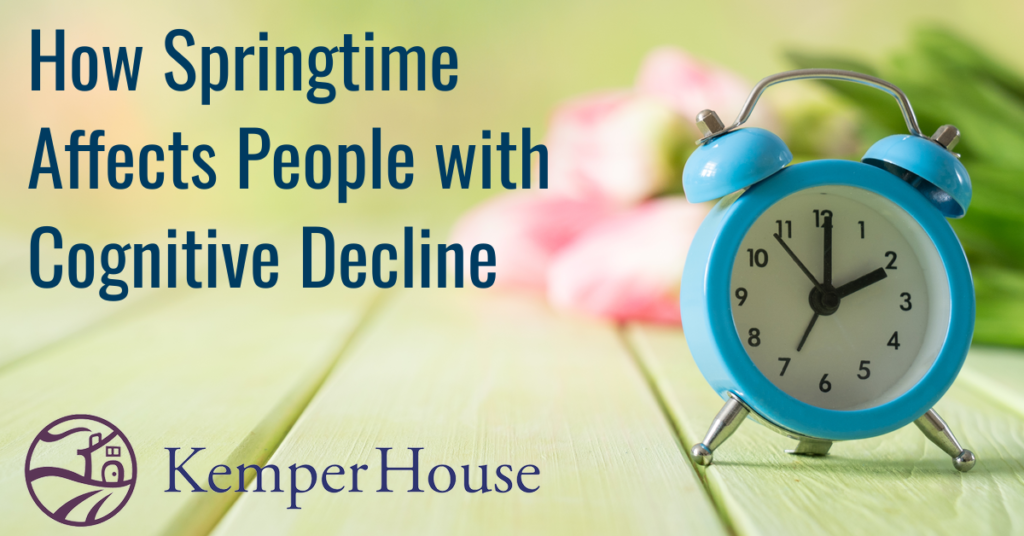
How Springtime Affects People with Cognitive Decline
For everything, there is a season – maybe even cognition? People with cognitive decline can be deeply affected by changes in their regular routines, and they can experience troubles when seasons change. The body’s natural clock must adjust to seasonal changes, including the onset of spring.
Adjusting to Daylight Savings Time
The concept of daylight saving time can confuse anybody’s internal clock. While the typical person can make adjustments, even if it takes a day or two, this is not as easily accomplished for someone with cognitive decline. Losing an hour in the spring can cause increased fatigue while gaining an hour in the fall increases the risk of irritability and depression in a lot of people. However, these effects can be much more pronounced in people with cognitive decline.
This change affects the chemicals the brain releases throughout the day and often results in changes in behavior, mood, and well-being. For those with cognitive decline, adjusting the clocks by one hour is also damaging because having a consistent routine is an important part of managing their condition. Daylight savings time disrupts this routine and often leads to confusion.
At Kemper House, we are very aware of the confusion that daylight savings time can cause, so we do our best to keep our residents’ routines as normal as possible.
Taking Advantage of Sunnier Days
With warmer weather and increased sunlight comes the potential for increased activity. Everyone should embrace this opportunity and encourage their loved ones to get outside and soak up some sun and engage in physical activity, whether it’s a simple stroll or something more intense, like gardening. As the Alzheimer’s Association emphasizes, such activity is an essential part of a memory care plan, as physical activity is linked to a decreased risk of cognitive decline.
Kemper House allows our residents the freedom to spend their time outdoors without the risk of them wandering off. Each neighborhood has an outdoor flower garden, areas to walk around, tables & chairs to relax, and bird feeders, to provide stimulation. We even have chickens living in the courtyards on Garden Way at Kemper House Strongsville and the South courtyard at Kemper House Highland Heights.
Kemper House tries to make the transition between seasons a smooth, more enjoyable experience. Residents receive care around the clock, providing the increased professional attention they need to adjust to daylight savings time and alterations in their regular routines. Happy spring, everyone!
By Jenny Kemper
Sources:
https://www.aegisliving.com/resource-center/how-does-springtime-affect-alzheimers/


